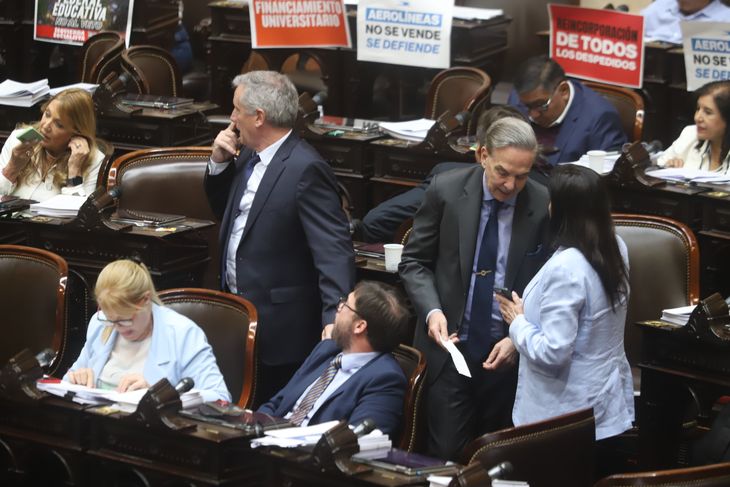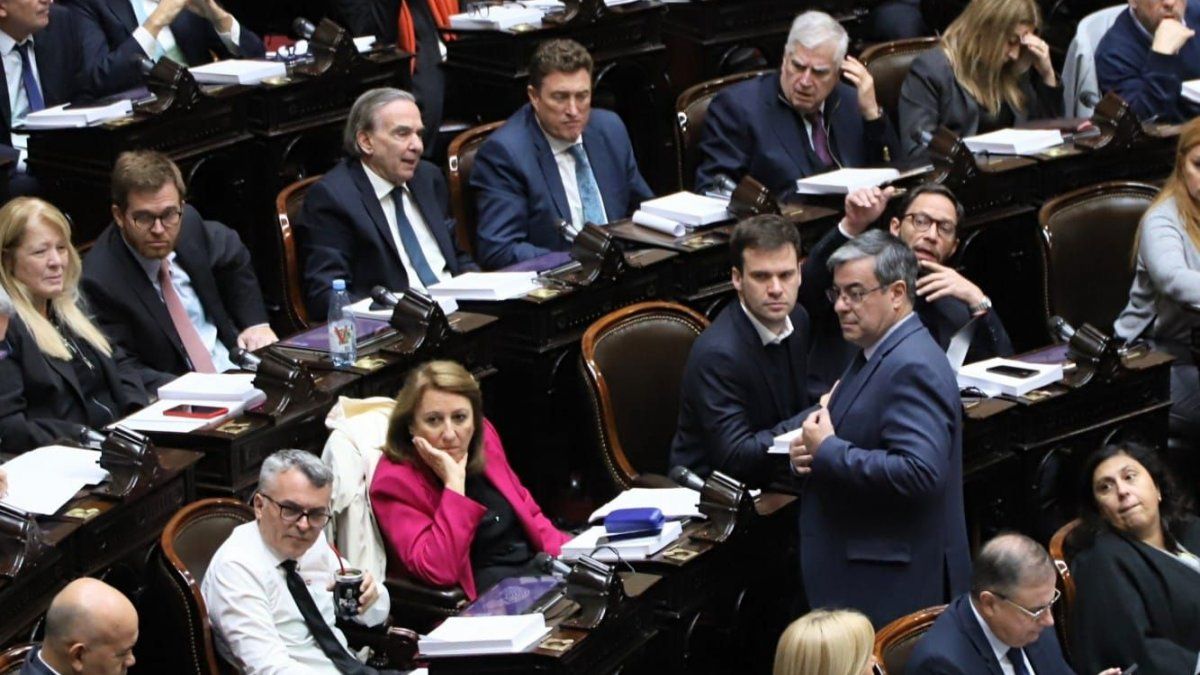From Congress, they seek to delimit the powers of the Executive. Also included on the agenda was reversing a decree that enables the free exchange of debt.
In less than a month, and by interpreting that different articles removed from the Bases law were subsequently decreed by the Government of Javier Milei, opposition deputies They managed to agree on a project that reforms the current regime of Necessity and Urgency Decrees (DNU) that will be voted on National Congress.
The content you want to access is exclusive to subscribers.
The session was called for next Tuesday, November 12 at 3 p.m. and would include accompaniments from the blocks Federal Meeting, Union for the Homeland, Democracy forever (dissident radicals) and the Left Front: If they have no absences and take a unanimous position, they would obtain the parliamentary majority to modify the DNU regime established in the law 26,122promoted by Kirchnerism in 2006. The position of Federal Innovation and the PROwhile Freedom Advances will reject the initiative, but is considering requesting a session for Wednesday the 13th with electoral reforms.


The initiative that obtained an opinion has three specific points: clarify the definition of need and urgencythat the rejection of one of the two chambers is sufficient to revoke a DNU and establish a validity period of the decrees up to 90 days. After that time, Congress must vote to approve the continuity of the policies and no longer to repeal them, as is currently the case. This last point is the only variation in the deputies’ proposals. Karina Banfi (UCR) and Juan Manuel Lopez (Civic Coalition), which for the moment did not speak out in favor of the majority project.
Dialoguists Deputies Federal Meeting

The Federal Meeting block, promoter of the reform.
Mariana Fuchila
According to a report from the Faculty of Law of the Universidad Austral, Javier Milei is the fourth president with the highest number of DNUs in his first nine months in office with 39 decreesbehind Eduardo Duhalde (78), Alberto Fernández (60) and Néstor Kirchner (51). Likewise, he was the first president to have both chambers of the National Congress repealed a DNU: 656/24, of funds reserved for the Intelligence Service. The situation could be reiterated if the initiative to revoke the DNU 846/2024 on free debt exchange.
DNU of free debt exchange
On September 20, the national government published the DNU 846/2024 that relaxes the requirements for carrying out debt exchanges involving securities denominated in dollars with short-term maturities. “Future subscriptions of public debt instruments, regardless of their payment currency, can be carried out with public debt instruments whatever their payment currency,” says the publication in the Official Gazettewhich also brings reforms in the Sustainability Guarantee Fund of the Argentine Integrated Pension System (FGS).
The initiative provoked an immediate reaction from the entire Peronist group, which even called for a press conference five days later to announce his rejection of the decree. The priority was even expressed by Cristina Fernández de Kirchnerwith specific terminals in the two holders of the legislative blocks: German Martinez (Deputies) and Jose Mayans (Senate) integrated their list into the internal Justicialist Party. Even the strategy to repeal the decree was the main agenda item that the Peronist senators had at a bench meeting last Wednesday.
The rejection of DNU 846/2024 It was included in the agenda of next Tuesday’s session and would also have radical and provincial support. The opposition also seeks to include the opinion to classify cases of sexual harassment in the workplacewhile the ruling party has three approved projects that it wants to approve before the end of the year: Budget 2025, Clean Sheet and the privatization of Aerolíneas Argentinas. Without sufficient consensus, they negotiate vote by vote with the governors.
Source: Ambito




